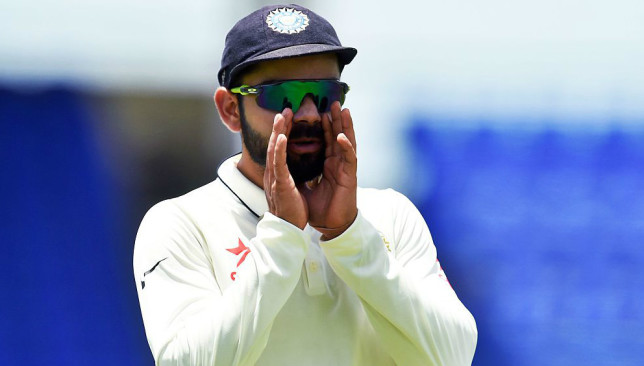
Anil Kumble knows the venue of India’s first Test in the Caribbean quite well. It was in Antigua that one of the iconic images of the leg spinner, bowling with a broken jaw, was captured.
Now, a full fourteen years on, Kumble returns to the islands as a former player and the new coach of the Indian cricket team. It is his first major coaching assignment of any kind – surely a baptism of fire.
The West Indies also have personal significance for Kumble’s captain Virat Kohli. It was here that the Indian skipper made his bow in Test cricket five years ago and this is his first full series as captain outside the subcontinent and his third overall.
The Caribbean is a special place for both captain and coach and now, the duo prepare to conquer the islands over the following seven weeks.
BIG PICTURE
Test cricket has been sparse for both sides in 2016. The West Indies have only played one Test in the year so far – against Australia at Sydney (the match was drawn). India, meanwhile, have not played a Test match since December 2015, when they defeated South Africa by 337 runs at Delhi.
It would suggest both teams might be a bit out of practice, although they have been involved in plenty of limited-overs cricket in 2016. Both were heavily involved in the ICC World T20 held in India earlier this year, with the West Indies going on to win that tournament. The home side are also fresh off a defeat in an ODI tri-series final to Australia last month in the Caribbean, which also involved South Africa.
India, for their part, returned victorious from a short tour to Zimbabwe that consisted of limited-overs internationals. The visitors only lost one game, although theirs was a side almost entirely made up of inexperienced players on the fringes of the Test team or debutants.
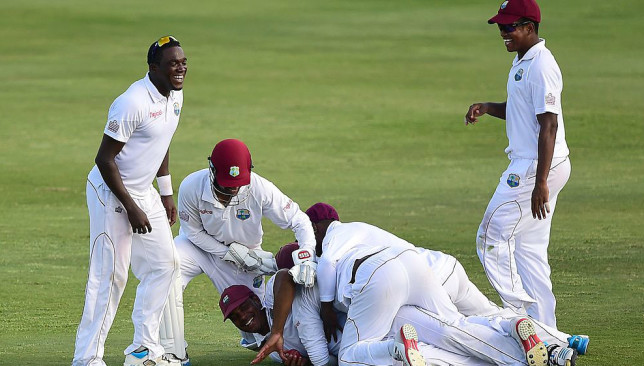
West Indies last won a Test series in 2014.
The West Indies have not won a Test series since beating Bangladesh 2-0 in 2014. Indeed, in the two years since that victory, the Windies have won only one Test match (against England in 2015). They have been beset by combustible player-board relations, squabbles, underperformance, chopping and changing sides; the triumph in the World T20 came as something of a surprise, in a way, given the adversity West Indies cricket has faced.
India, meanwhile, have enjoyed a far better run and morale is high. With the ghost of Mahendra Singh Dhoni now confined to limited-overs cricket, Kohli has grown into his role as Test captain with Ajinkya Rahane as his deputy. There is also a new coach in Kumble, and there is justifiable excitement and optimism regarding the direction Indian cricket will take in the near future.
Despite improved form since Dhoni’s retirement from the longest format – India have beaten Sri Lanka away and South Africa at home in that time – the Indians have struggled outside the subcontinent. Indeed, their last Test series win outside Asia came on the last trip to the West Indies – by a 0-1 margin. In the five years since then, India have a solitary Test win (at Lord’s in 2014) to their name out of twenty-one Tests played outside the subcontinent. This series presents a chance to put that unwanted distinction to bed.
FIXTURES
The series comprises four Tests to be played over two months. The first Test is set to be played at North Sound, Antigua (scheduled to begin on 21 July), the second at Kingston, Jamaica (30 July), the third at Gros Islet, St Lucia (9 August) and the fourth and final Test at Port-of-Spain, Trinidad (22 August).
REVENGE IS SWEET
The most recent meeting these two sides came in the semi-final of the World T20 in Mumbai. It was a game that stuck badly in the craw of the Indian community. After Kohli led the charge with a 47-ball 89 to help India finish on 192, the West Indies replied in emphatic style. Johnson Charles contributed a half-century and Lendl Simmons took the game and the man-of-the-match award away from Kohli. The West Indies won by 7 wickets. Satisfyingly, the winning hit came from the bowling of India’s Test captain.
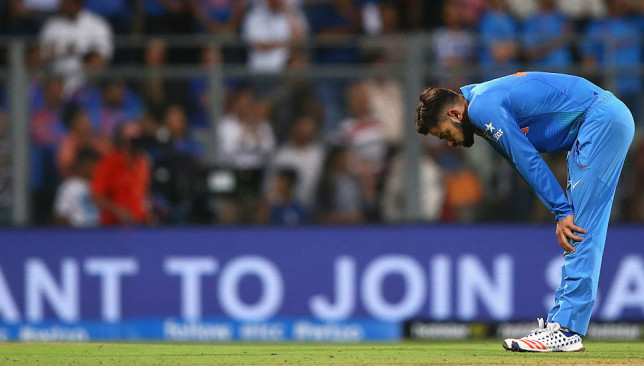
India will still be hurting from the World T20 semi-final defeat on home soil.
India does not forget easily. And no doubt, with their pride broken and still smarting from the defeat at the Wankhede Stadium, revenge will be among the first things on their minds. Forget competitive spirit. This is personal.
India’s batting will be key to their success. The line-up is powerful, and could potentially bat up to number nine depending on the team selection. South Africa found that out first hand when they suffered three comprehensive defeats during their tour of India. In each game, India batted first.
Against a West Indian attack that looks somewhat anodyne, short of genuine fast bowlers, – Jerome Taylor has retired from Test cricket, Kemar Roach has been dropped – the Indian batsmen will fancy their chances. Some of them have a point to prove, while others must simply carry on their good work.
Most eyes will be focused on Kohli for obvious reasons, but vice-captain Rahane is also in decent form – he scored twin hundreds in the Delhi Test against South Africa.
We are, though, yet to see the best of Rohit Sharma in Test cricket (he has two fifties in 11 innings under Kohli). The openers Murali Vijay and Shikhar Dhawan have endured some patchy form, but the side is unlikely to deviate from the settled look it has acquired under Kohli.
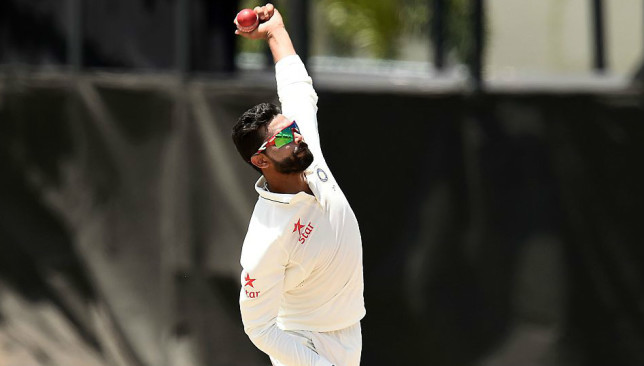
Jadeja can be a handful on slow turning decks.
Forcing a flaky home side to chase their score has huge advantages for India, as they can then set the spinners Ravichandran Ashwin and Ravindra Jadeja free on wearing pitches, where they proved hugely effective against the touring South Africans. The two are likely to be among India’s leading wicket-takers in this series – they have already got into their stride in the two tour matches played in St Kitts – and are central to India’s bowling hopes. The visitors also have options aplenty in the pace department – Ishant Sharma struck 22 times when India last toured the Caribbean – though they are unlikely to be relied on to as great a degree.
For the West Indies the burden of batting and bowling will fall on the experienced shoulders in the side. It is a line-up that has struggled for consistency, and key to the West Indies’ success will be summoning the application to produce across multiple, successive sessions.
There has been hope in the form of glimmers, but no more. Darren Bravo scored a hundred in Australia, while Marlon Samuels, batting at number four, is another on whom batting hopes rest. Vice captain Kraigg Braithwaite’s form could be termed passable, although the rest of the batting is raw, underprepared or otherwise sketchy. New stars could be discovered in this series, but the West Indian batting is built more on hope than expectation heading into it.
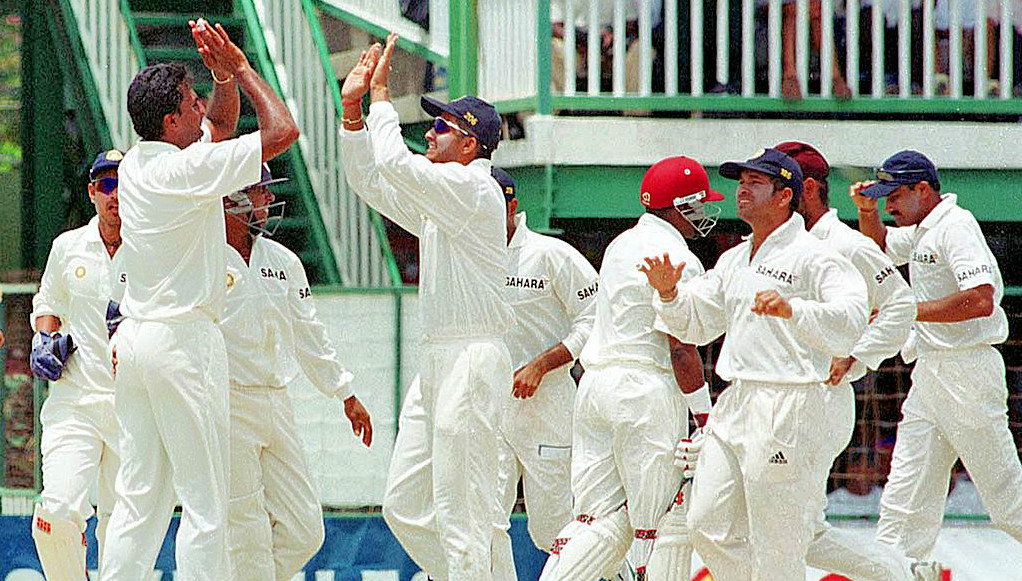
The West Indies’ bowling bears the mishmash look of a travelling road-show. There are precisely two purpose-built fast bowlers in the squad (Shannon Gabriel, the uncapped Miguel Cummins) and one spinner (Devendra Bishoo; back after being dropped for the tour to Australia). Besides them, there are the seamers Carlos Braithwaite and captain Jason Holder. The part-time off-spin of Jermaine Blackwood and new inclusion Roston Chase could also be called on by Holder, but this appears a case of quantity trumping quality. The onus is on Holder to lead from the front, on Braithwaite to contribute with bat and ball, and on Bishoo to spin rings around the Indians with his trickery.
All in all, the West Indian bowling attack looks a bit raw in places, and highly unthreatening at the worst of times. Kohli, prior to the tour of Sri Lanka, spoke of his strategy to play five bowlers as a means to collect all twenty opposition wickets – a sure-fire way to win a Test match. It will be a task for the home side to emulate that feat, and one can expect to see several bowlers try their hand at dismissing the Indians.
Never say never in sport, however. Perhaps the variety of bowling styles employed might be enough to disturb the Indians’ concentration and break their rhythm.
TEAMS
The tourists have made only two changes to the side that defeated South Africa. Gurkeerat Singh Mann and Varun Aaron have made way for Mohammed Shami, who has not played for the country since the 2015 World Cup, and the uncapped Shardul Thakur. Wriddhiman Saha remains the only wicketkeeper in the squad, although KL Rahul would be expected to don the gloves in an emergency.
The five-bowler gambit could make a return for India, and they have three slow bowlers and six seam/fast bowlers to choose from. A quintet of Ishant, Ashwin, Jadeja, Umesh Yadav and Bhuvneshwar Kumar is likely in such a situation, with Amit Mishra replacing Jadeja and Shami replacing one of either Ishant or Umesh as possible alternatives.
Should India stick to four bowlers, then the number six slot in the order becomes contentious, and the choice of quicks becomes a less automatic one. Perhaps it is Dhawan and Rohit who have the most to gain from good performances in this series.
For the home side, one of the most significant exclusions is that of former captain Denesh Ramdin. The wicketkeeper made two half centuries against Australia last time out, but his form has generally been poor. In the past two and a half years, Ramdin’s average reads 22.10 – a notch lower than his career average of 25.87. He is expected to be replaced by Shane Dowrich, who has performed impressively in first-class cricket (843 runs in the past two seasons), is only 24 and seems a more bankable prospect to put faith in.
Spinners Jomel Warrican and Sulieman Benn do not feature this time round, and neither does wicketkeeper-batsman Shai Hope. There has, however, been a call-up for the Barbados batsman Chase, whose first-class record merits consideration at a minimum (1672 runs from 46 innings at 42.87), and Leon Johnson, who struggled in the tour games against the Indians and averages 39.28 in Test cricket, last featuring in Cape Town in early 2015.
PREDICTIONS
The narrative about the ‘fallen giants’ of the West Indies has been spun on each of India’s previous four visits to the islands, centred around how this once-great side struck fear into the hearts and minds of opposition teams but was now reduced to a pale shadow of their former selves.
This time, however, even that treatment of the home side is nowhere to be seen. Divided and out-of-sorts, the West Indies look to be there for the taking. Indeed, India head into this series as favourites, a somewhat unfamiliar position, no doubt, for a nation that has routinely struggled to make its mark outside the subcontinent after all the optimism of the Sourav Ganguly and Rahul Dravid years.
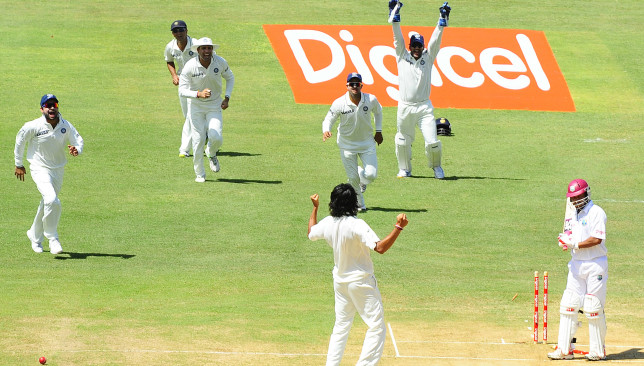
India are likely to better their 2011 performance.
If they are to kick on and become a great side under Kohli, India must get used to being considered favourites, of performing with the weight of expectation on their shoulders, of playing in a manner that befits champions – with swagger and a sense of inevitability about their every move.
But overconfidence could be fatal. Besieged by problems they may be, but the West Indies have a squad with a mixture of grizzled veterans and young, hungry firebrands. The quality might be lacking, but the fight should not. Psychological victories could shape the proceedings of the Test matches, and winning the mental battle will be critical. The West Indies would look to a Test win as a success. Should collapses be avoided, more draws are likely.
India, for their part, will be hoping to record a more convincing victory this time – extending the 0-1 success they registered over three Tests in 2011.